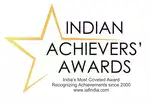Types of Qualitative Research Methods
As today’s business landscape becomes more complex than ever, organizations are increasingly turning to qualitative research to gain deep insights into consumer behavior. By employing diverse methods of qualitative market research, such as focus groups, in-depth interviews, and qualitative data analysis, businesses can unearth rich, nuanced data that goes beyond mere numbers and statistics. In this blog, we explain the different types of qualitative research methods, examining their applications, strengths, and considerations. Our goal is to provide you with valuable insights that will empower your decision-making processes. So, let’s get started.
What is Qualitative Research, and Why Does It Matter?
Qualitative research is a powerful market research methodology that goes beyond mere quantitative data and focuses on understanding the underlying motivations, beliefs, and experiences of individuals. Unlike quantitative research, which relies on numbers and statistical analysis, qualitative research employs open-ended and conversational dialogue to gather rich and nuanced information. It aims to delve into the "why" behind people's thoughts and behaviors, providing valuable insights for businesses. Let's consider a practical example of qualitative research in action. Imagine a convenience shop that aims to expand its customer base. Through systematic observation conducted by qualitative research agencies, they discover that the number of male customers visiting the store is significantly higher than females. To understand the reasons behind this gender disparity, conducting one-on-one interviews with potential consumers is the most effective approach. These in-depth interviews allow researchers to engage in meaningful conversations, uncovering insights into why women aren't frequenting the business. By exploring factors such as preferences, perceptions, and barriers, qualitative research can help identify valuable strategies to attract more female customers.
Different Qualitative Research Methodologies
Qualitative research encompasses various methodologies, including ethnographic research and case study research. Ethnographic research involves immersing oneself in the subjects’ natural environment to gain an in-depth understanding of their behaviors and culture. On the other hand, case study research focuses on exploring specific individuals, organizations, or events in detail to extract valuable insights. These methodologies often involve extensive record-keeping and process observation, enabling researchers to capture the nuances and complexities of human behavior. The process of qualitative data collection involves skillful interviewing techniques, active listening, and creating a comfortable and trust-based environment for participants to openly share their thoughts and experiences. This approach allows researchers to gather rich, qualitative data that provides a deeper understanding of consumer perceptions, motivations, and decision-making processes. Here are the different types of qualitative research methods:
In-Depth Interviews
In-depth interviews are one-on-one interviews performed across several regions, either over the phone or in person. By adhering to the client's requirements, the domain specialists can simply and properly interpret and create open-ended responses. In-depth interviews have the ability to handle surveys of any scope, target actual decision-makers and initiate appointment-based interviews.
Focus Group Discussions
Focus Group Discussions are pre-planned, semi-structured interviews led by professional moderators who offer broad questions to generate responses and encourage participants to talk about them. These discussions are helpful for individuals who desire a more in-depth understanding of topics than a survey can provide. Focus group discussions help form organized discussions with selected individuals for their views, generate several perspectives on the same topic, and build greater leadership skills in moderators. Since these discussions are organized by moderators who are experts in this field, the final responses and insights that you get are profound and reliable. Our focus group discussions involve a wide range of participants. So, if we collaborate with a mobile manufacturing company for a focus group discussion to give them a more solid understanding of how their product is perceived, we span participants from all possible levels, ranging from end-users to the CEO of the company, thereby providing them with varied perspectives.
Online Bulletin Board
An online bulletin board is one of the most dynamic and innovative ways to conduct qualitative market research and get the greatest ideas for exploratory research topics. This approach of qualitative data collecting entails assembling a virtual group of individuals to enable data collection through interactive discussions between participants and moderators. The online bulletin board is ideal for generating multiple levels of interaction between researchers and respondents, flexibility for researchers and clients, and creating minimum attrition and maximum participation. It also helps in a seamless transition between all kinds of interactions.
In-Home Usage Testing
IHUTs (in-home use tests) is a trading block research tool for all stages of product development when individuals often use the product at home. Product creators may use IHUTs to thoroughly test their consumer items before releasing them to the public. Manufacturers may smooth out any kinks or make big improvements this way. In-house use testing helps in the gathering of genuine market research insights, the evaluation of product potential, the identification of its USP and the understanding of the target audience's possible purchase intent.
The Importance Of Selecting an Appropriate Method And How To Choose One
Two aspects are of paramount importance in qualitative research. First, knowing when to use qualitative research, and second, selecting the appropriate method. Different research questions and objectives require different methodologies, and choosing the right approach ensures the integrity and validity of the study. Here are the factors that researchers must consider in order to choose the most suitable types of qualitative research methods that align with their research objectives. This can help optimize data collection efficiency, uphold ethical standards, and ultimately lead to valuable insights and impactful research outcomes.
- Alignment with research objectives: Choosing the appropriate method ensures that the research approach aligns with the specific objectives and goals of the study, allowing researchers to address their research questions effectively.
- Target population considerations: Different methods may be more suitable for specific populations. For example, one-on-one interviews might be ideal for capturing individual perspectives, while focus groups can facilitate group dynamics and interactions.
- Depth of understanding: The choice of method should consider the desired depth of understanding required for the research. Ethnographic research, for instance, allows researchers to immerse themselves in the natural environment of participants, providing rich and contextual insights.
- Data collection efficiency: Selecting the right method ensures efficient data collection, maximizing the use of available resources such as time, budget, and manpower.
- Methodological rigor: The appropriate method enhances the rigor and validity of the research by ensuring that the data collection process aligns with established standards and best practices in qualitative research.
- Ethical considerations: Different methods have different ethical implications, and researchers must carefully consider potential risks, privacy concerns, and informed consent requirements associated with each method.
- Practical considerations: Researchers should also take into account practical factors such as the availability of resources, access to participants, and logistical feasibility when selecting the appropriate method.
Final Word
The selection of the appropriate qualitative research method is crucial for ensuring the success and validity of a study. By carefully aligning the chosen method with research objectives, considering the characteristics of the target population, and assessing the depth of understanding required, researchers can gather rich and meaningful insights. The right method empowers researchers to delve into the intricacies of human experiences, perspectives, and behaviors, leading to valuable contributions to knowledge in various fields. However, with the diverse array of qualitative research methods available, companies might often get confused and overwhelmed. This is where having a leading qualitative research firm by your side can make all the difference. Have the opportunity to tailor their approach to meet the unique requirements of their study, ultimately enhancing the impact and relevance of their research outcomes. When looking for a market research firm with unmatched experience in qualitative data collection, look no further than Unimrkt Research. We have worked in more than 22 languages while being ISO20252 and ISO 27001 certified. To learn how we can help you deploy different types of qualitative research methods, contact us at +91-124-424-5210, email us at sales@unimrkt.com, or fill out our contact form, and we will promptly respond to your inquiry.
Quick Enquiry
Customer Service, We Make it Better
Recent Posts
- Refining Unit Economics with Robust Quantitative Market Research
- A Concise Guide to Quantitative Market Research
- 3 B2B Market Research Trends That Could Shape 2024
- Eyes on 2024: Changes That Might Disrupt the Healthcare Industry This Year
- Cracking the Language to Make Survey Questions Inclusive in 2024
- Attracting Investors: How Market Research Can Solidify Your Case
- Solid Foundations: Ways to Enhance Trustworthiness in Qualitative Research
- What Makes CATI Research So Effective?
- Moderator Qualities That Improve Qualitative Market Research
- 5 Consumer Market Trends That Will Define 2024
- What are the strengths of quantitative research?
- How to Make Your Partnership with Primary Market Research Firms Fruitful
- A Quick Guide to Harnessing the Strengths of Quantitative Research
- Advice from Your Research Partner: Don't Compromise Quality on Online Surveys
- Why Cost Efficiency is the Currency of the Healthcare Market













